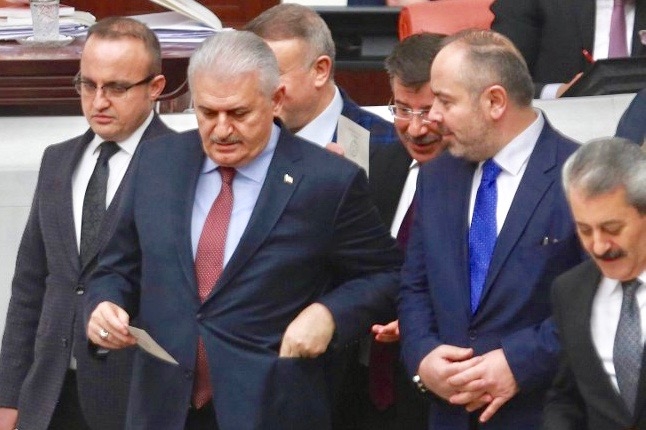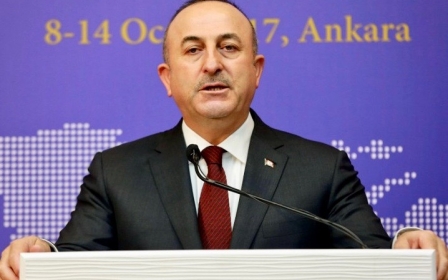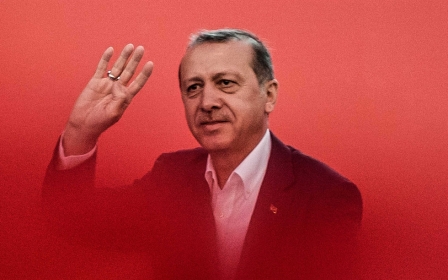Turkish MPs back new constitution bolstering Erdogan powers in first reading

The Turkish parliament on Sunday passed in a first reading a controversial bill bolstering the powers of the presidency under Recep Tayyip Erdogan that critics claim will lead to a one-man rule.
The parliament approved the two final sections of the 18-article new constitution after a marathon week of debating that began on 9 January and included sessions that often lasted late into the night.
The ruling Justice and Development Party (AKP) mustered the necessary 330 or more votes - a three-fifths majority - needed for the adoption of the constitutional change and sending it to a referendum for final approval.
The constitution plan will now go to a second reading in the Ankara parliament expected to start on 18 January where the 18 articles will again be debated one by one.
The debates have been fractious and last week saw some of the worst fighting seen in the parliament in years with punches thrown, deputies bloodied and one lawmaker even claiming to have been bitten in the leg.
The proposed changes, which will create an executive presidency for the first time in modern Turkey, are controversial and far-reaching.
The president will have the power to appoint and fire ministers, while the post of prime minister will be abolished for the first time in Turkey's history.
Instead, there will a vice president, or possibly several.
With Turkey already under a state of emergency for almost six months following the 15 July failed coup, the changes will also widen the scope of conditions in which the president can declare an emergency.
Parliamentary elections and presidential ballots will be held simultaneously, with the draft giving 3 November 2019 as the poll date.
Middle East Eye propose une couverture et une analyse indépendantes et incomparables du Moyen-Orient, de l’Afrique du Nord et d’autres régions du monde. Pour en savoir plus sur la reprise de ce contenu et les frais qui s’appliquent, veuillez remplir ce formulaire [en anglais]. Pour en savoir plus sur MEE, cliquez ici [en anglais].




